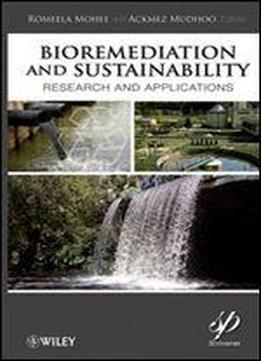
Bioremediation And Sustainability: Research And Applications
by Romeela Mohee /
2013 / English / PDF
8.8 MB Download
Bioremediation and Sustainability is an up-to-date and comprehensive treatment of research and applications for some of the most important low-cost, "green," emerging technologies in chemical and environmental engineering
Sustainable development requires the development and promotion of environmental management and a constant search for green technologies to treat a wide range of aquatic and terrestrial habitats contaminated by increasing anthropogenic activities with the main sources of contaminants being the chemical industries. Bioremediation is a technique that uses living organisms in order to degrade or transform contaminants into their less toxic forms. It is based on the existence of microorganisms with the capacity to attack the compounds on the enzymatic level.
Bioremediation is an increasingly popular low-cost alternative to conventional methods for treating wastes and contaminated media with the possibility to degrade these contaminants using natural microbial activity mediated by different consortia of microbes. Over the last few years, the scientific literature has revealed the progressive emergence of various bioremediation techniques. Bioremediation and Sustainability presents an up-to-date and comprehensive collection of chapters prepared in bioremediation technology research and applications.
The strategies covered in this volume can be applied in situ or ex situ, depending on the site in which they will be applied. In situ is the treatment done in the site of the contamination, and ex situ involves the removal of soil or water to subsequent treatment. There is a wide variety of techniques that have been developed in the past and are covered in this volume, such as natural attenuation, bioaugmentation, biostimulation, biosorption, composting, phytoremediation, rhizoremediation, and bioleaching.











